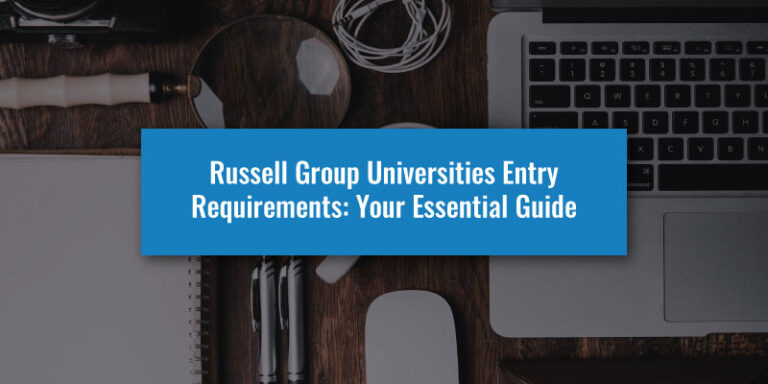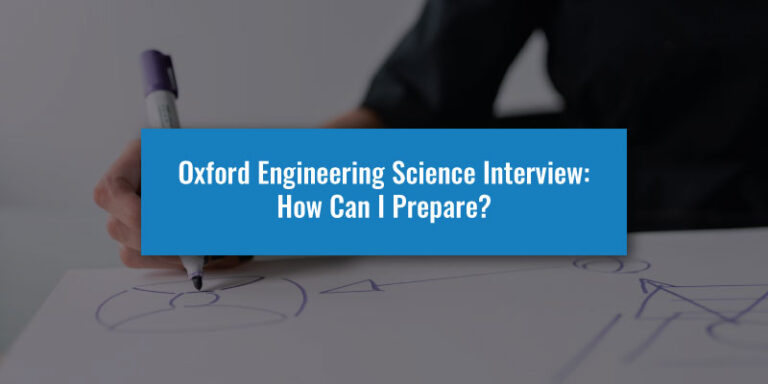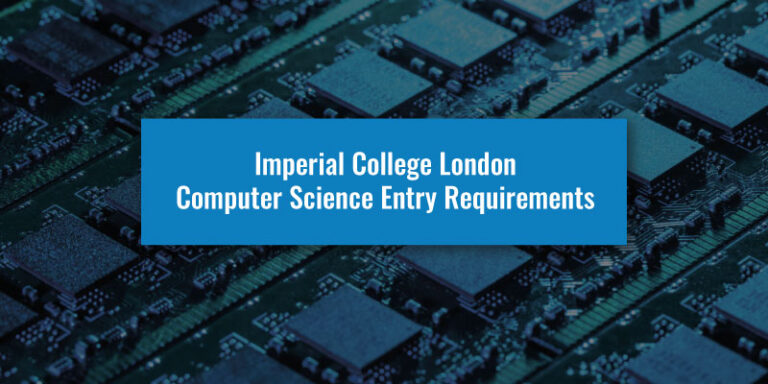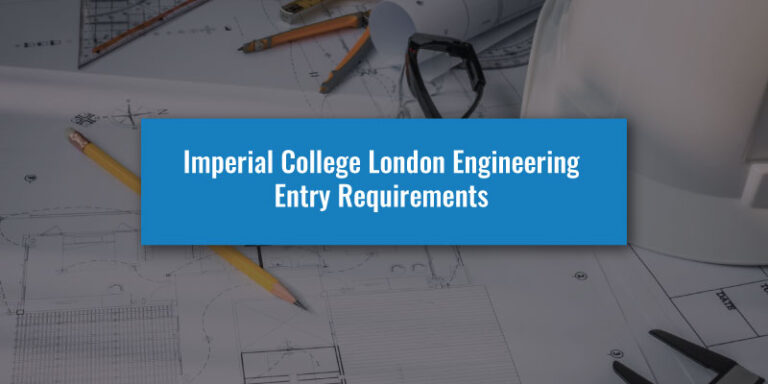Demand for good engineers is high. In the finance, mechanical, IT and electronics sectors in particular, there are shortages of chartered and incorporated engineers.
For anyone looking for a rewarding future with a wide variety of employment prospects, there has never been a more exciting time to embark on an Engineering degree. Knowing the entry requirements to the top courses will ensure you craft the best application and secure your place.
In this guide, we’ll review the entry requirements for some of the top engineering degrees in the UK.
Types Of Engineering Degree
There are two types of Engineering degrees offered at UK universities: BEng (Bachelor of Engineering) and MEng (Master in Engineering).
A BEng is a standard three-year degree for undergraduates. Those wishing to become a Chartered Engineer, it is mandatory to follow degree studies with advanced study equivalent to the final year of a MEng programme.
While the majority of degrees focus on a particular discipline, there are some General Engineering courses that enable the decision about which specialism to study to be taken at a later date.
Universities in the UK offer courses in the following areas:
- General Engineering
- Civil Engineering
- Mechanical Engineering
- Aerospace
- Naval Architecture
- Electronic and Electrical Engineering
- Production and Manufacturing
- Chemical, Process and Energy
- Metallurgy
- Materials Science
- Ceramics and Glass
- Polymers and Textiles
- Maritime Technology
- Biotechnology
Our guide to Engineering University Rankings Guide features breakdowns of the ranking tables for six of the top engineering subjects in the UK, so be sure to check it out if you want to discover the right university for you.
Early preparation is the key to a successful Oxbridge Engineering application.
Writing the perfect Personal Statement, scoring highly on the ESAT or PAT and interviewing like a pro is how you get your dream Oxbridge Engineering offer.
Discover our Engineering Full-Blue Programme for comprehensive admissions support by clicking the button below to enrol and triple your chances of success.
Engineering Entry Requirements
All of these universities and the courses will require different entry requirements, but we can still look at what offers applicants typically receive.
GCSEs
Applicants must demonstrate a broad general education of at least five GCSEs in grades 9-4. English Language and Mathematics are required with a minimum of grade 4 – English Literature will not be accepted in lieu of GCSE English Language. As well as this, you’ll be expected to have Science which is compulsory at GCSE level anyway.
Choice-wise, there is really no bad option. It could be valuable to have a subject that is related to technology or a business subject, or even a language. For anyone considering applying to study Engineering at Oxbridge, we can look at how the two universities consider GCSEs in different ways.
There are no specific GCSE requirements for entry into Engineering at Cambridge. GCSE results are looked at as a performance indicator but within the context of the performance of the school/college where they were achieved.
There are also no specific GCSE requirements for Engineering at Oxford, but they will be taken into account when the Admissions Tutors consider your application. Higher grades at GCSE can help to make your application more competitive, and successful applicants typically have a high proportion of 7, 8 and 9 grades.
A-Levels
If you want to study Engineering at university making sure your A-Level subjects are suitable is essential. To get into an Engineering degree you will usually require a minimum of two A-Levels – but for the most popular courses, three A-Levels at A/B grade are commonly needed.
Entry requirements range from CCC to A*A*A, with universities commonly offering applicants ABB. A-Level Mathematics is usually essential, with many universities requiring or preferring a second A-Level in Physics.
Keep in mind your preferred area of Engineering and any requirements that may be associated with it. For example, if you are interested in Chemical Engineering, Chemistry will usually be preferred over Physics.
For the more competitive courses, Further Maths is also a preferred subject and would place you in an advantageous position by having it. Subjects such as Computing, Design Technology and Science (Biology and Chemistry, if not pursuing Chemical Engineering) are also seen as helpful.
However, if you are considering applying for Civil Engineering at UCL – for example – applicants typically receive offers of A*AA but in no specific subjects. UCL does have a general preferred subject list though which can be referred to.
Oxford Engineering Science A-Level Requirements
A*A*A, including A*s in Mathematics (or Further Mathematics) and Physics.
Cambridge Engineering A-Level Requirements
A*A*A, including Mathematics and Physics.
Access "The Oxbridge Application Vault"
- 300+ page ebook for Oxbridge Applicants
- 25 page ebook for Personal Statement
- 2h+ online course to succeed in any exam
- Online Oxbridge Success Calculator
- 12 page ebook about UniAdmissions
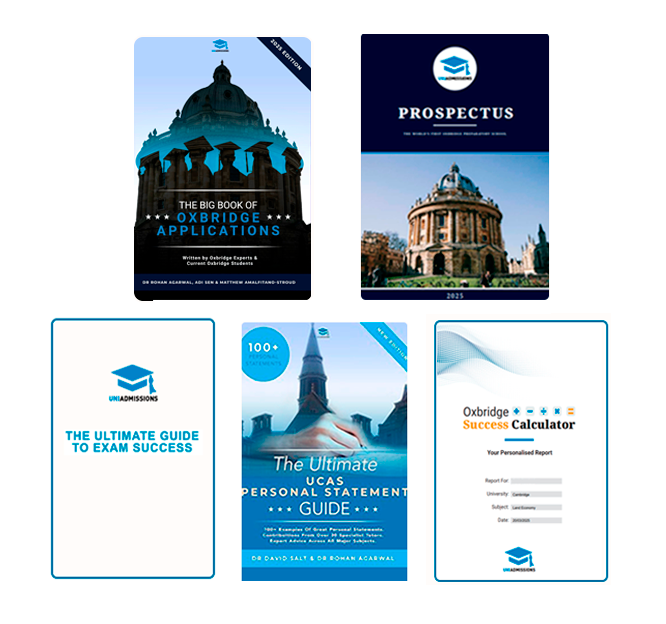
Access "The Big Book Of Oxbridge Applications" For FREE
The Oxbridge admissions process is tougher than most other universities, so be prepared for everything you need to know by downloading The Big Book Of Oxbridge Applications for free now. Through over 350 pages, you’ll find:
- Over 40 admissions test practice questions
- 28 example Oxbridge Personal Statements
- Interviews with Oxbridge students and graduates
- Additional downloadable resources
Fill in your details below to claim your digital copy today!
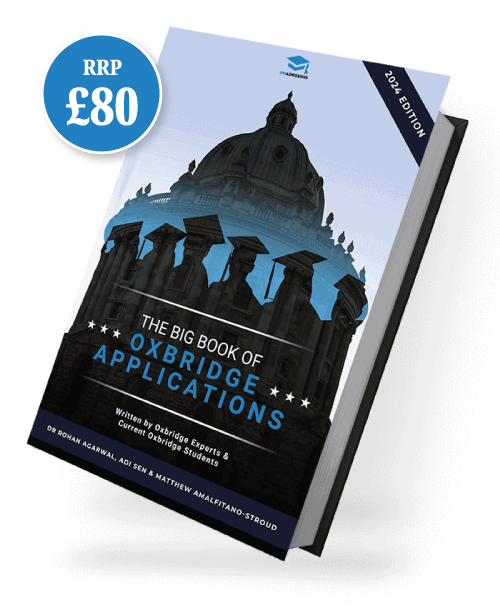
Admissions Tests
Some courses will also require you to sit an Admissions Test which will be considered alongside your application.
Oxford
Students applying to Engineering at Oxford will have to sit the Physics Aptitude Test (PAT). The test is designed for candidates who have studied the first year of A-Level (or equivalent) Mathematics and Physics and covers similar material to that of the GCSE and A-Level syllabus.
The test must be sat on either October 22nd or 23rd at a dedicated Pearson VUE testing centre.
Calculators are permitted, though only with the digital calculator included in the testing software.
Cambridge
As of 2024, Cambridge applicants are now required to sit the Engineering and Science Admissions Test (ESAT). This is a computer-based exam that’s split into five subtests, three of which must be completed.
Applicants for other subjects can choose two of these subtests, but Engineering applicants all have to sit Mathematics 1, Mathematics 2 and Physics. These are all highly relevant to the course, so it’s understandable that this rule is in place.
The test is run by Pearson VUE and must be completed on either October 9th or 10th at a dedicated testing centre.
Calculators are not permitted.
Non-Oxbridge
Imperial College London and University College London require applicants for its various engineering degrees to complete the ESAT, just like Cambridge applicants. Applicants for both universities will have the chance to sit the ESAT in January instead of October, but the same format and rules apply.
The University of Edinburgh uses the Global Select Pathway, which has to be sat by international students to assess if they meet the required standards of English and identify any knowledge gaps there may be.
International students applying to Liverpool John Moores University will also have to sit an Admissions Test.
Interviews
Finally, applicants at some universities will need to attend an interview before they receive their offer. Universities that use interviews include Oxford, Cambridge and Imperial College London.
These interviews will typically be panel interviews with one or two interviewers. These last roughly 30 – 40 minutes and involve answering questions and conversing with the interviewees about the subject and your interests.
Initial Oxbridge interviews always occur in December, although you may need to attend additional interviews with different colleges in January if you’ve been pooled. Other university interviews happen a bit later in the admissions cycle as the UCAS application deadline is later than Oxbridge.
Offers can be released anywhere from a couple of weeks to a few months after your interview, so be prepared to have to wait to find out how you did.
Conclusion
If you are considering applying to study Engineering at university the opportunities available to you are endless. With so many different areas to pursue, there is a field out there that will be perfect for you, and if not you can always choose a General Engineering course and look into specialising later on.
It is essential though, that if you do have a specific area of Engineering in mind that the A-Levels and subjects you study reflect this. There is no point wanting to study Chemical Engineering if you do not study Chemistry at A-Level. With these considerations in mind, you will be able to craft the perfection Engineering application.
We hope this guide has been helpful for you and we wish you the best of luck with your application. If you’re applying to Oxford or Cambridge and want to triple your chances of earning your offer, discover our Oxbridge Engineering Full-Blue Programme today and begin the enrolment process.
Our expert tutors will guide you to Oxbridge Engineering success.
Applying to Oxbridge is immensely competitive, and you must give yourself the best chance of success. We help you craft the perfect Personal Statement, achieve a highly competitive ESAT or PAT score and teach you how to Interview effectively – covering all areas of your Oxbridge application.
Discover our Oxbridge Engineering Ful-Blue Programme for comprehensive admissions support by clicking the button below to enrol and triple your chances of success.


